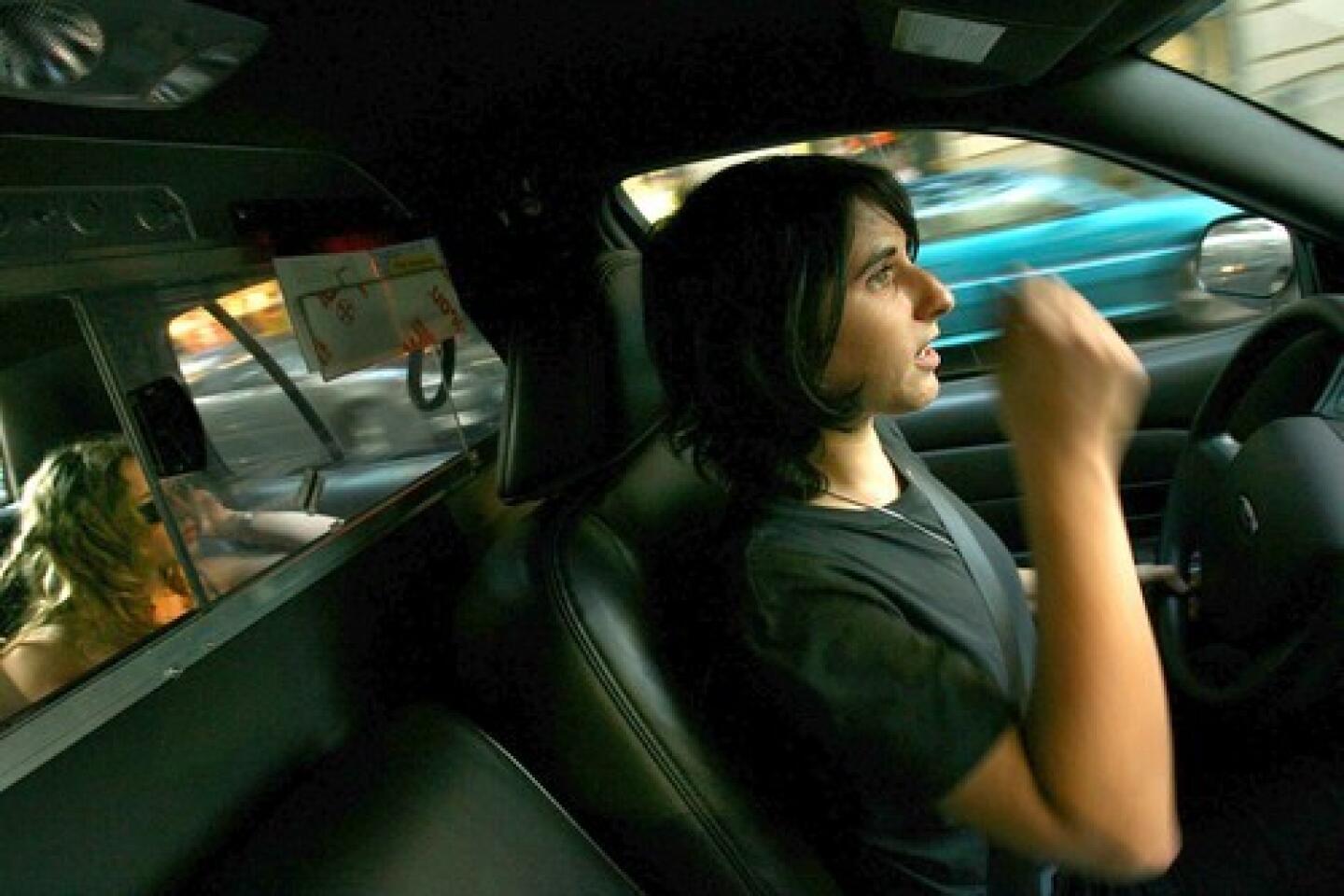Innocent gestures can translate poorly, traveler warns
- Share via
In Sydney, Australia, I simply hailed a taxi, opened the door and jumped in the back seat. The driver narrowed his eyes. “Where to, mate?” he asked in a voice that could chill a refrigerator.
In Marrakech, Morocco, I crossed my legs during an interview with a government official. Immediately, a hush fell over the room.
In a restaurant in Mumbai, India, all I did was reach for the nan. A diner at the next table shot me a look that stuck 2 inches out my back.
It took years before I realized what I’d done.
It turns out that in each case I had, unwittingly, committed a faux pas. To varying degrees, I had offended my hosts. My only comfort is my ignorance. I take solace in Oscar Wilde’s observation that a gentleman is someone who never gives offense -- unintentionally.
And after nearly 25 years of travel on six continents, I have learned the hard way that getting through customs is a lot more difficult than just filling out a declaration form. It means navigating a series of cultural booby traps. It means understanding that although people everywhere are the same biologically, they can be worlds apart in their habits and traditions.
Here’s my advice for anyone visiting another country: Eat, drink -- and be wary.
My Australian taxi driver was offended because I sat in the back seat rather than up front next to him. His attitude is not uncommon, according to “Kiss, Bow or Shake Hands,” a book on business behavior, and stems from Australians’ disdain of class distinctions.
My interview with the Moroccan bureaucrat was cut short because in crossing my legs I had showed him the sole of one of my shoes, a grave affront to Muslims, who see the foot as unclean.
Reaching for the bread in Mumbai? There’s nothing wrong with this per se, but I did it with my left hand. Indians eat with their hands, in particular their right; their left hands are reserved for other matters, including after-toilet cleansing, and are therefore unacceptable for use at the dining table.
When I curled my thumb and index finger into a circle and pointed the other three fingers upward, my intention was to tell the Brazilian hotel clerk that everything had been “OK.” That would have worked fine at home in the U.S., but in Brazil it’s considered vulgar.
The OK sign is not OK in many other places too, including most of the rest of Latin America, plus Germany, Malta, Tunisia, Greece, Turkey, Russia and the Middle East.
There are many hand gestures that don’t travel well.
The “V” for victory sign was immortalized by Winston Churchill in the early, dark days of World War II, and the proper form is with the palm facing outward. A simple twist of the wrist puts you in dangerous cultural waters. Throughout much of Her Majesty’s realm, the palm-in V sign is the equivalent of the more infamous middle-digit salute.
During the Middle Ages, it was thought that French soldiers would permanently disarm English bowmen by cutting off their middle and index fingers, the ones they used to draw the bowstring. Consequently, the English were said to celebrate battlefield victories and taunt the French by displaying these two digits intact.
Even though the “thumbs up” (meaning everything is fine) has worldwide acceptance among many pilots, it can get you in big trouble outside the cockpit.
If you’re hitchhiking in Nigeria, for example, your upraised thumb may be interpreted as a take-this-and-shove-it insult to passing motorists. The rule of thumb there is, don’t do it.
Sometimes I think the solution is to tie my hands behind my back, but there are countless other ways to offend while traveling. The entire area of food and drink is a cultural minefield.
In Asia, for example, you would never leave your chopsticks upright in your food. As Chin-ning Chu, author of “The Asian Mind Game,” advises, “In the ceremony to honor the dead, many Asians offer food to their deceased ancestors by placing incense in the bowl and burning it as a way to carry the food to the other world.
“It is a common Asian superstition that to place your chopsticks in such a way is bad luck and means that this meal is for the dead rather than the living.”
When drinking with others in Prague, Czech Republic, before the first sip, the Czechs deem it important to look your companions in the eye and lightly clink glasses. But less than 300 miles away in Budapest, Hungary, however, that identical gesture can get you deep in goulash. The clink is considered unpatriotic because it was once the signal for a coup.
If you show up with flowers at Asian homes, you’ll probably be welcomed warmly. Unless, of course, you take white chrysanthemums (they’re used only for funerals) or you offer an odd number (considered unlucky in some cultures).
Travel won’t broaden you unless your mind is broad to begin with. After all, a foreign country isn’t designed to make the traveler comfortable; it’s designed to make its own people comfortable.
More to Read
Sign up for The Wild
We’ll help you find the best places to hike, bike and run, as well as the perfect silent spots for meditation and yoga.
You may occasionally receive promotional content from the Los Angeles Times.










